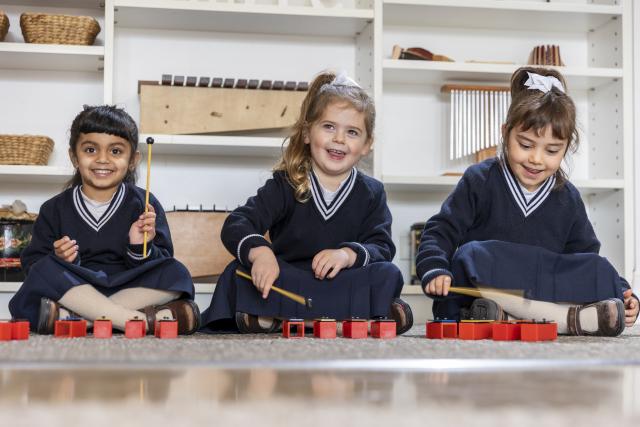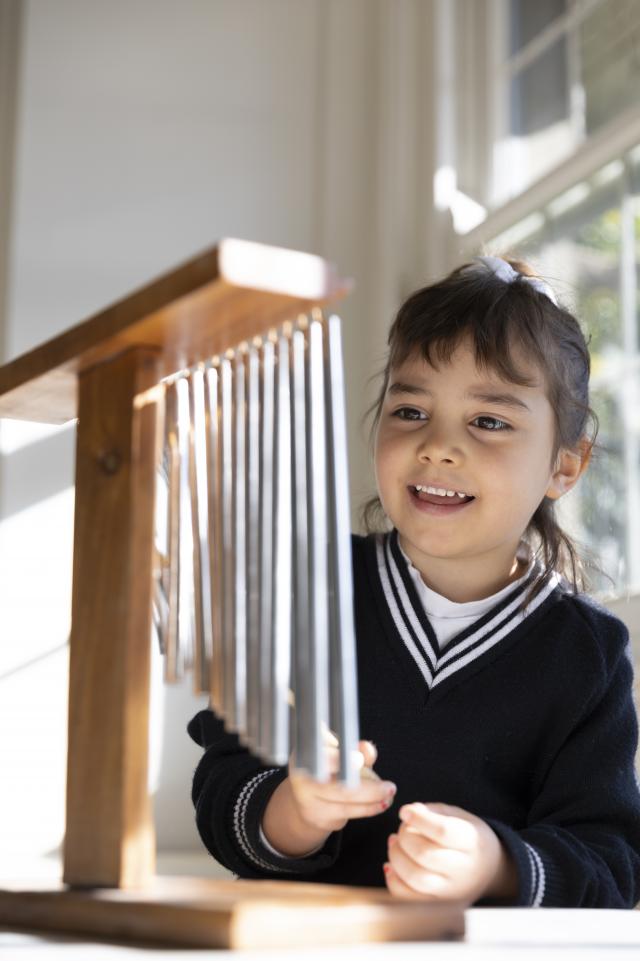Enjoying, learning about and making music influences many parts of young children’s learning and development. Music is one of the few activities that use both sides of the brain (logical and creative), which means it helps build important brain connections.
Not only can music get children moving and thinking creatively, music education also provides them with a range of developmental benefits. It enhances engagement and wellbeing, increases personal and social development, and improves outcomes in other curriculum areas.
The benefits of music education, proven by decades of research, are the basis of Melbourne Girls Grammar’s decision to introduce music to our students from the age of three.
The specialist program taught at our Early Learning Centre aims to provide the foundation for children’s musicality through dance, movement, music and storytelling. The use of voice, beat, melody and rhythm are the defining features of the program.
The development of students’ musical literacy and their confidence to participate is of primary importance.
Martin J. Bergee and Kevin M. Weingarten, University of Kansas, ran a study in 2020 to measure the relationship between music education and increased performance in other disciplines such as maths and reading. Their findings, which were published in the Journal of Research in Music Education, showed learning music did appear to make students better at numeracy and literacy.
Greek philosopher Plato said he “would teach children music, physics and philosophy; but more importantly music; for in the patterns of music and all the arts, are the keys to learning.”
Joanna Patocs, Melbourne Girls Grammar Music teacher (Prep to Year 4), says “children with an early music education have higher levels of working memory, mental flexibility and self-regulation; these skills are essential to learning and development.”
She adds that “learning music supports fine and gross motor skills, co-ordination, and body awareness.” She believes it also enhances the following abilities in children: auditory processing through focused listening; literacy through visual tracking and decoding; numeracy through patterns, duration and subdivision.
Joanna says patience and persistence is also learnt through painstaking skill development while confidence and self-worth are built through the successes, large and small, along the way.
“In short, an early introduction to music not only builds essential skills but is itself a thread that connects the dots of a broader education,” she said.
Learn more about Melbourne Girl Grammar’s ELC and Junior Years program, including our music program, by joining us at an Open Morning or a school tour. Register today mggs.vic.edu.au/tour









